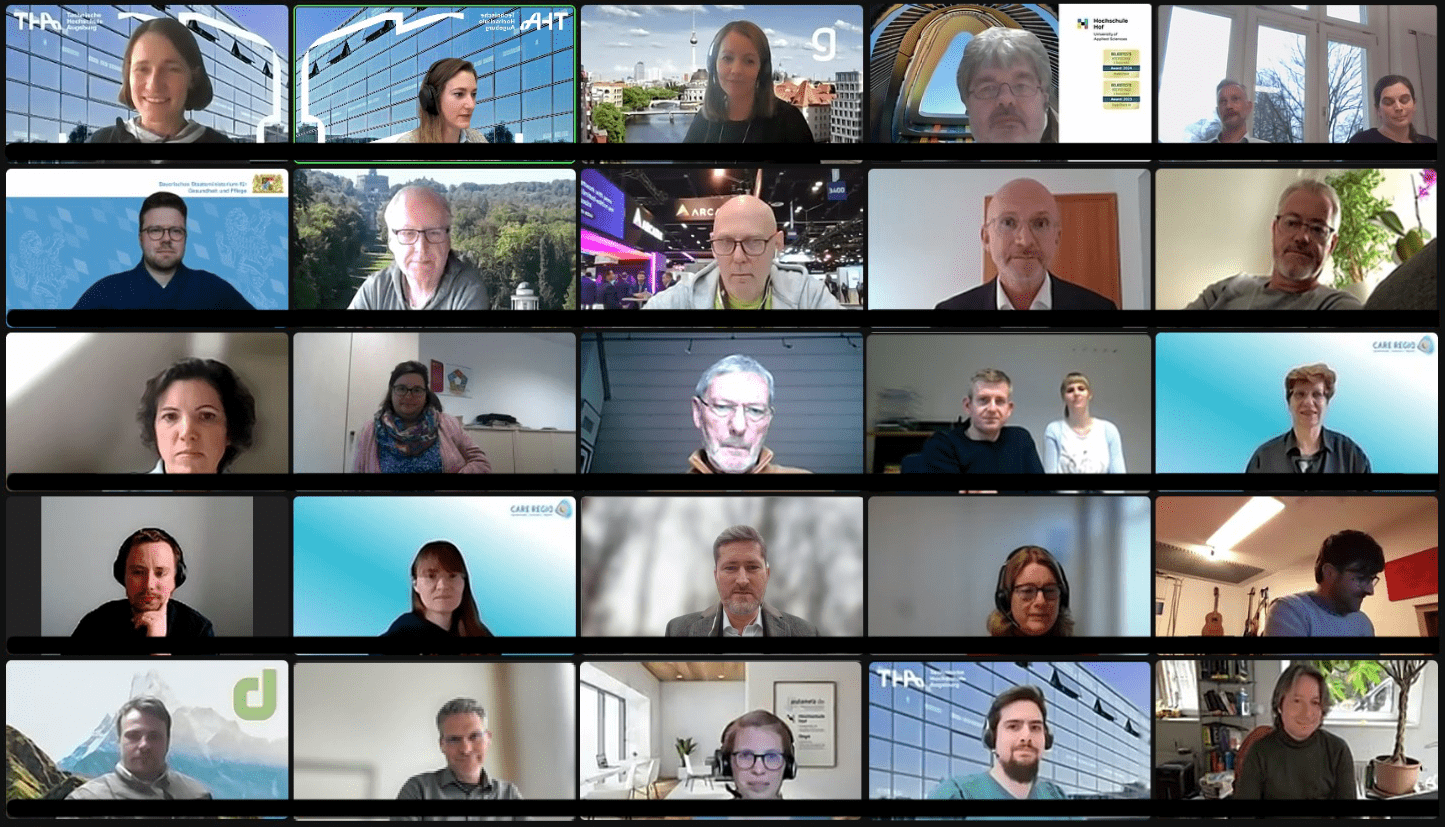
5th CARE REGIO Network Day - A great success
Dr Anika Heimann-Steinert from gematik GmbH explained the current status of communication in medicine (KIM) from Berlin. gematik promotes digitalisation in the healthcare sector on behalf of the Federal Ministry of Health. KIM enables stakeholders in the healthcare sector to communicate securely and efficiently and to send digital data confidentially. Heimann-Steinert emphasised how important it is to clearly communicate the added value of the connection to the telematics infrastructure.
Dr Georg Münzenrieder and Dr Maximilian Rückert from the Bavarian State Ministry of Health, Care and Prevention confirmed that the government is on the right track. However, they emphasised that more comprehensive information about the introduction of digital applications in healthcare is required. The Free State is therefore investing in a large-scale communication campaign to intensify the dialogue between science and the healthcare industry. The representatives of the Ministry emphasised that the CARE REGIO joint project is setting a good example and that the focus should not be on the problems, but on the opportunities created by the telematics infrastructure.
In the following discussion, it became clear that theory is ahead of practice. Long procurement times for technical equipment and the implementation of systems must be accelerated. Care facilities that do not participate in pilot projects are dependent on procuring information themselves, which results in the need for competent contact persons. There was also a direct appeal to software companies to provide TI applications more quickly. The participants in the discussion continued to emphasise the need for a willingness to use new technologies and the importance of regional networks to bring together service providers, stakeholders and users - which is precisely where CARE REGIO comes in.
In conclusion, everyone agreed that better communication, comprehensive support and stronger communication of the added value are essential for successful integration into the telematics infrastructure. CARE REGIO sub-project manager Andreas Mahler summarised: "The technology must be usable, and then it must also be used."

